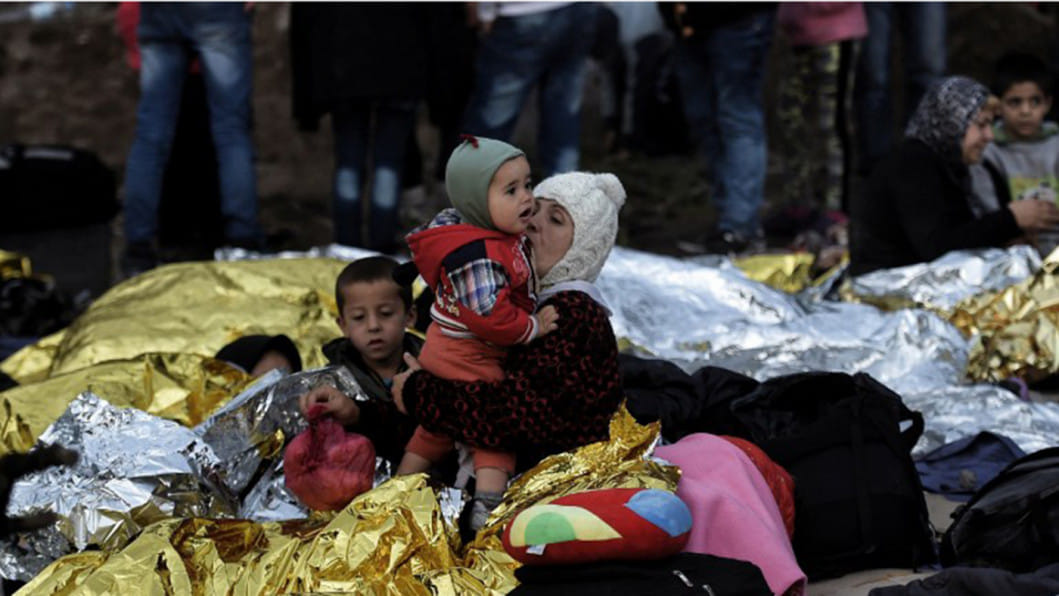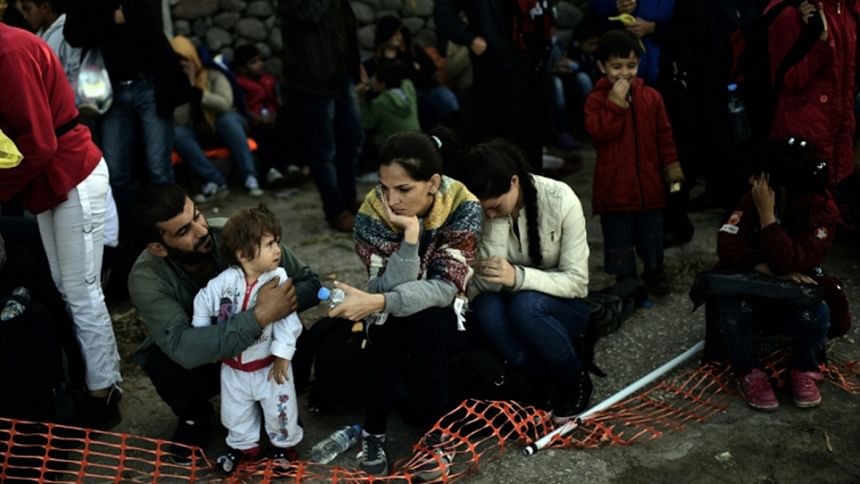Children's bodies washed up in Greece

The badly decomposed bodies of two children were found washed up on the Greek island of Kos on Sunday, the latest victims of a crisis that has seen 630,000 people enter the EU illegally this year.
A dead baby boy, thought to be less than a year old, was discovered on a hotel beach early Sunday, dressed in green trousers and a white t-shirt.
The decomposed body of an older child, wearing blue trousers and a pink t-shirt, believed to be three- to five-years old, was found hours later at the same spot.
Authorities believe the children were from migrant families that had been trying to reach Kos by dinghy, Greek media reported. Both bodies have been transferred to hospital for an autopsy and DNA testing.
Greece has been struggling to cope with a wave of migrants making the dangerous crossing from Turkey.
The EU's border chief Fabrice Leggeri said 630,000 people have entered the bloc illegally this year.
Brussels and Ankara are reportedly set to approve Monday a plan that would see Turkey join Greek coastguard patrols in the eastern Aegean, coordinated by EU border protection agency Frontex.
Any migrants picked up would be taken back to Turkey, where six new camps for up to two million people would be built, co-financed by the EU.
- 'Everyone's cost' -
Frontex chief Leggeri said "more integrated management" was needed to cope with the regions' worst migrant crisis since World War II, including giving the agency power to act without member state approval.
Over 310,000 of the migrants have landed in Greece this year, according to UN refugee agency figures, and nearly 3,000 have died or disappeared during the crossing.
At least 15 babies and children drowned when their overcrowded boat capsized off the Aegean island of Farmakonisi in September, and Greece's coastguard fears the problem will worsen as winter approaches.
"Member states must understand that in place of deploying hundreds of police at their national borders, it would be more useful to send them to the (EU's) external border," Leggeri told the Ebra press group.
"If every state manages the crisis on their own, without coordinating with their neighbours, the flux will go from one country to another, to everyone's cost," he said.

The huge influx of people has exposed deep rifts among the EU's 28 member states over where the newcomers should go and what should be done to stem the flow.
Plans to share out 160,000 migrants throughout the bloc using mandatory quotas have been opposed by several member states, and mooted "hotspots" on Europe's borders have proved controversial.
Trials of the new closed-door centres to speed up processing of the new arrivals already under way in Italy have raised questions over what happens to those whose claims are rejected.
Leggeri said that on average only "39 percent of deportation orders are carried out" -- mostly because the migrants' countries of origin refuse to take them back.
"Let's be realistic, if we want to send illegal migrants back to their countries of origin, we will need detention facilities, in the hotspots in particular," he said.

 For all latest news, follow The Daily Star's Google News channel.
For all latest news, follow The Daily Star's Google News channel. 



Comments